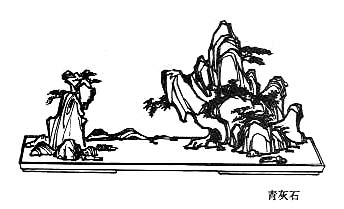Shi Jing 
 – Le Canon des Poèmes
– Le Canon des Poèmes
Le plus ancien recueil connu de poésie chinoise, plus de trois cents chansons, odes et hymnes. Tr. Legge (en) et Granet (fr, incomplète).
Shijing II. 3. (176)
Ô la belle, la belle armoise,
qui est au milieu du coteau !
Sitôt que je vois mon seigneur,
quelle joie donc et quel respect !
Ô la belle, la belle armoise,
qui est au milieu de l'îlot !
Sitôt que je vois mon seigneur,
mon cœur alors a la gaîté !
Ô la belle, la belle armoise,
qui est au milieu de la berge !
Sitôt que je vois mon seigneur,
il me donne cent coquillages !
La barque en peuplier vogue ! vogue !
plongeant tantôt, flottant tantôt !
Sitôt que je vois mon seigneur,
mon cœur alors a le repos !
Granet LIII.
Luxuriantly grows the aster-southernwood,
In the midst of that large mound.
Since we see our noble lord,
We rejoice, and he shows us all courtesy.
Luxuriantly grows the aster-southernwood,
In the midst of that islet.
Since we see our noble lord,
Our hearts are full of joy.
Luxuriantly grows the aster-southernwood,
In the midst of that great height.
We see our noble lord,
And he gives us a hundred sets of cowries.
It floats about, – the willow boat,
Now sinking, now rising again.
Since we see our noble lord,
Our hearts are at rest.
Legge 176

Le Canon des Poèmes – Shi Jing II. 3. (176) – Chinois off/on – Français/English
Alias Shijing, Shi Jing, Book of Odes, Book of Songs, Classic of Odes, Classic of
Poetry, Livre des Odes, Canon des Poèmes.
Le Canon des Poèmes, Les Entretiens, La Grande Étude, Le Juste Milieu, Les Trois Caractères, Le Livre des Mutations, De la Voie et la Vertu, 300 poèmes Tang, L'Art de la guerre, Trente-six stratagèmes
Bienvenue, aide, notes, introduction, table.
Index – Contact – Haut de page
